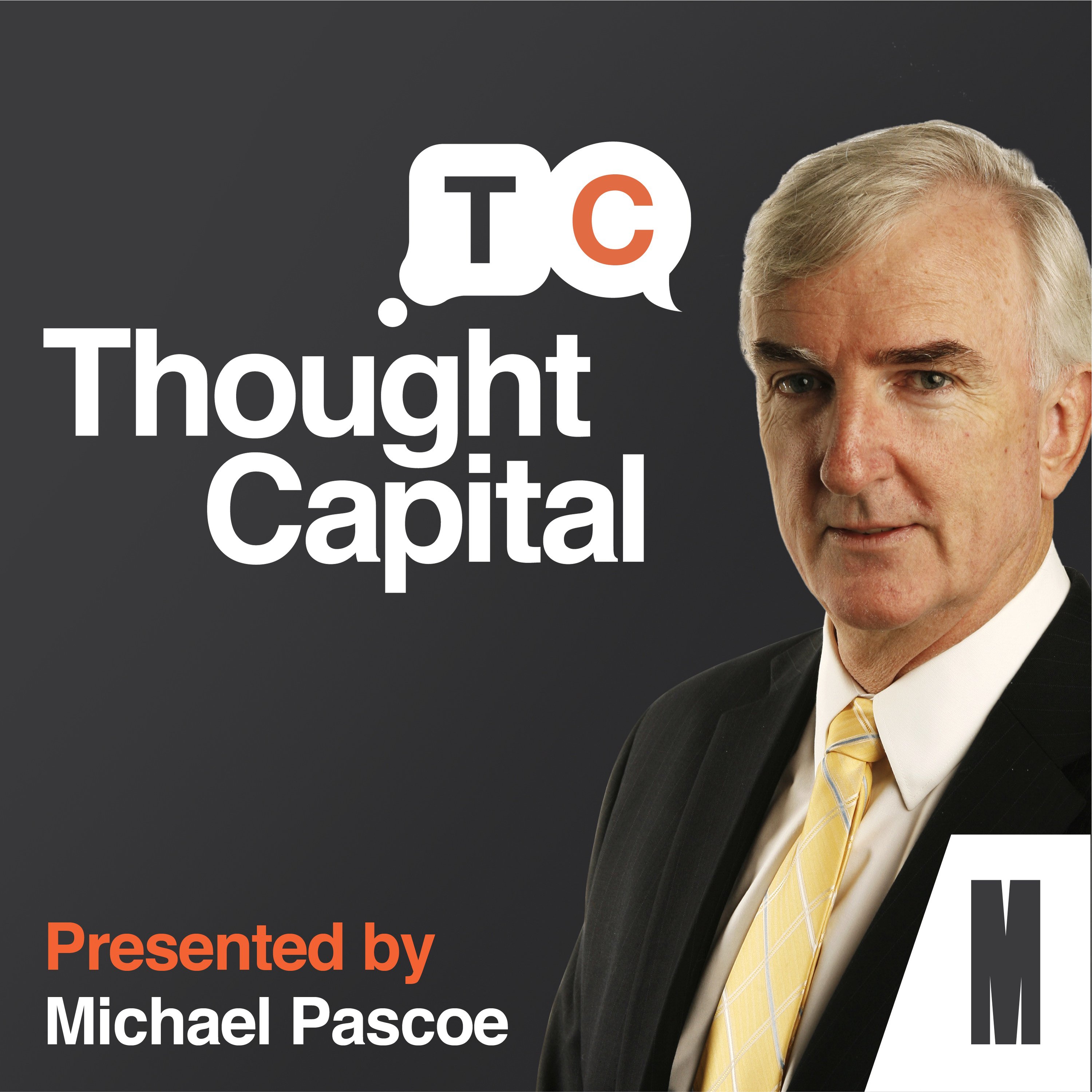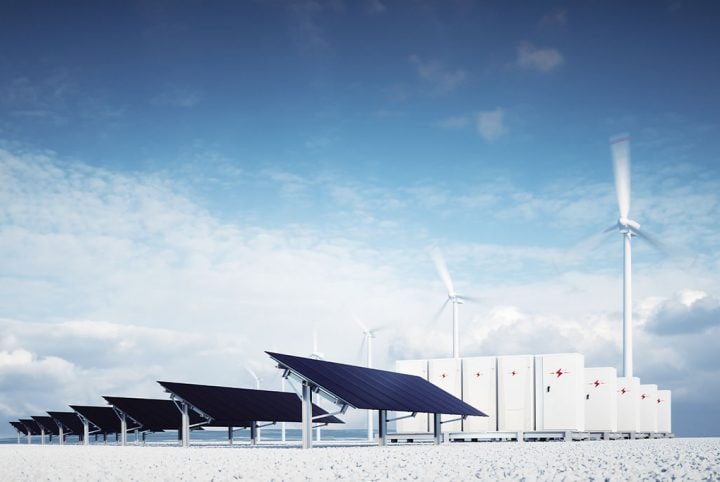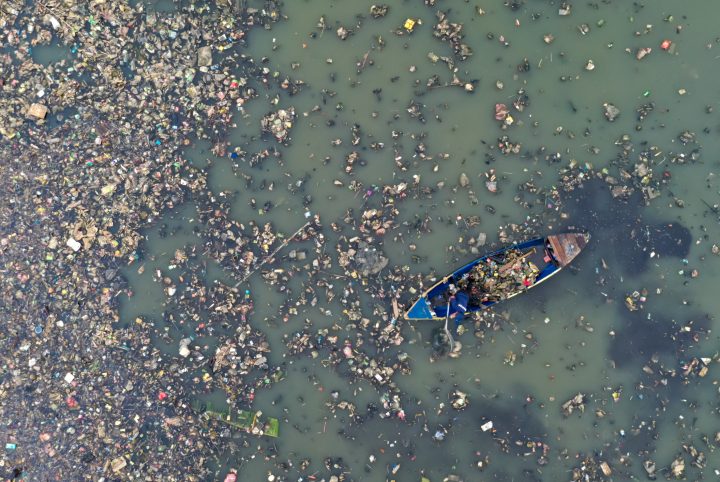Michael Pascoe: Hello, I’m Michael Pascoe. Welcome to Thought Capital, the podcast that delves into the wealth of ideas created by the experts at Monash Business School in Melbourne, Australia.
Michael Pascoe: Justice. Perhaps you immediately tend to think first of all of crime and punishment, or the idea of social justice: fairness. But what about energy justice? Another whole area to explore.
Diane Kraal: It’s just taking a broader view, not just focusing on the old economic arguments, which are really important, but saying, well, there’s an environmental concern here.
Michael Pascoe: I’m talking to Diane Kraal, senior lecturer in business, law and taxation on energy justice.
Michael Pascoe: Diane, what’s energy justice to you?
Diane Kraal: Well, energy justice is a concept that comes out of the legal concern for social justice. It’s applied to resource projects concerning the extraction of resources for energy, and it looks at not only the economics of a project, which is typically how a project is evaluated, but also looks at the politics of a project, energy security, and the environmental concerns around a project.
Diane Kraal: So we’ve got economics, politics, and environmental concerns, and together they’re called the Trilemma of concerns, in terms of policymaking. It’s simply, as I say, a tool or a framework that we use to try and evaluate the benefits of some sort of energy project for the wider community.
Michael Pascoe: And it’s relatively new as a tool?
Diane Kraal: It comes out of social justice, but it also comes out of the concern to do with energy poverty which was a big issue emanating from the UK whereby they’ve got all this gas and oil from the North Sea, but they’ve got a lot of people in the community that can’t afford to heat their homes or afford the fuel for cooking, so we refer to that as energy poverty.
Diane Kraal: It’s a way for the legal community to get into the debate about the pros and cons of a resource project that maybe has been exclusively for economic commentary or perhaps maybe technical engineering type commentary.
Michael Pascoe: Once you let the lawyers in, who knows where it’s going to end?
Diane Kraal: As I say, you’ve got a project, there’s got to be policy around that project, and the policy then converts into legislation, so that’s why you need another discipline looking in at these types of projects. So we’re trying to widen those that can engage in the pros and cons of these very important projects.
Michael Pascoe: If we take a look for a moment at a controversial energy project to illustrate the complexity of energy justice, the extraction of coal and the proposed Adani mine in Queensland, very controversial, thanks to the greenhouse gas issue. But, if I’m in a village in India burning cow dung for my fuel versus burning coal for electricity, where’s the justice for the Indian villager?
Diane Kraal: Well, that’s right. I don’t believe there is justice for those people in India. Adani’s probably doing quite well out of the project, maybe buying a very cheap form of fuel, onselling it to utilities in India, and then they wipe their hands of the final effects of using coal-fired power stations as a form of energy in India.
Michael Pascoe: We say gas is better than coal, but coal is better than cow dung. It gets complicated, doesn’t it?
Diane Kraal: Yeah, it does get complicated. We’ve got this trilemma. We’ve got economics, so it’s good for Adani. We’ve got the politics of it; we’re still arguing as to whether this project should go ahead. And we’ve also got the environmental concerns.
Diane Kraal: So somewhere we have to strike a balance, because I guess we’ve got a third world country that is low on its energy requirements, and I guess there’s the argument that there are alternate forms of energy, why just focus on coal?
Michael Pascoe: How have you used this prism of energy justice?
Diane Kraal: I’ve used it for different sorts of projects. First of all I was involved in some work in Papua New Guinea, and the question was asked of me, the tax incentives that the Papua New Guinea gives to mining and petroleum, what is the economic benefit of them to the community? Are we getting value for money? And I said that’s great, I’m happy to engage in that research for you, but what I’d like to do is broaden it a bit, so not only look at economics, but also the politics and the environmental issues around the question about the value of tax incentives, so I’ve used it for that particular scenario.
Diane Kraal: I’ve also used it for a more recent project, comparing the way gas is priced in Australia to the Netherlands. In the Netherlands, they’ve got the big Groningen project. They’ve had a number of issues there, so I’ve been doing a comparison with a couple of other researchers, and we discussed what’s the framework? Because essentially, those other researchers are economists, and my area is not economics, necessarily. I come from kind of the social science, if you like, and they agreed that the energy justice framework would be appropriate, so not just looking at the economics but political and environmental.
Michael Pascoe: Let’s take them one at a time. Papua New Guinea, first of all. You’ve investigated if the PNG government tax breaks for the extracted resources sector, that is oil, gas and mining, were beneficial to the country’s economy. What did you find?
Diane Kraal: What I found was that in an energy project, what’s most important is the quality of the resource, so the fact that you hand out tax incentives like tax breaks, tax holidays, a whole range of tax concessions, they’re actually a little bit lower down in the investor’s mind. They really look at the quality and the accessibility of that resource. So the government, in a way, is kind of wasting their time trying to throw all these various tax incentives.
Diane Kraal: From the point of view of energy justice, that’s great because it means that the government can collect a reasonable level of taxation from the extraction of resources such as gas, in the case of PNG and the different minerals they have like copper, for instance.
Michael Pascoe: How do you use that tool of energy justice to work out how much is a fair tax take, how much becomes counterproductive if you’re giving a discount?
Diane Kraal: Economically, the PNG LNG project stacks up quite nicely. The facility was constructed on time, sales contracts have been met, but what are the people of Papua New Guinea getting? And really what they want out of it is some sort of tax.
Diane Kraal: They are getting a measure of royalties, but actually I don’t think that the local community are getting enough from their natural resources in terms of taxation, and so my commentary was based on not only the economics, which looked great, but also I looked at some environmental and the political landscape to the extent that you can in Papua New Guinea.
Michael Pascoe: Let alone when you get corruption and the money doesn’t leave Port Moresby to go to the people who are affected on the ground, the landowners.
Diane Kraal: That’s right. It’s kind of interesting in Papua New Guinea at the moment. The landowners do get a measure of royalty, and the companies have said that yes they’ve paid those royalties into a bank account, but there seems to be a bit of dissension between the landowners as to who actually is the landowner generations on.
Michael Pascoe: PNG is another whole level of complexity, but in Australia we manage to make it complex as well. You’ve done a lot of work on offshore gas. Western Australia made submissions to the senate inquiry.
Diane Kraal: Yes.
Michael Pascoe: We’re being dudded?
Diane Kraal: Yes, well, I’ve decided just to concentrate on gas just off shore of Australia still in commonwealth waters, and one of the areas that I’ve focused in on is the gas transfer price. I’ve already made submissions about how overly concessional the petroleum resource rent tax is with regard to those projects. The government has kind of indicated that it might do something with future projects. So I’ve decided to concentrate on the gas transfer price, which I think can still be changed for current projects.
Michael Pascoe: Okay. We’ve been dudded, and the government’s not game to renegotiate?
Diane Kraal: Well, I have put in a submission to treasury. Still waiting for the government to release that report. It could be later this year. The evidence of the modelling that I’ve done, we are missing out.
Michael Pascoe: How much are we missing out on? The work you’ve done on Gorgon, how much money are we missing out on?
Diane Kraal: Okay. I’ve modeled Gorgon, Wheatstone, which are Chevron projects, the INPEX Ichthys project, and the Pluto project. I figure that 5 billion and 15 billion under simply using the “net back” method.
Diane Kraal: Now, the “net back” method is used in Australia already to calculate royalties, so it’s nothing unusual, so why we’re using this odd combination of methods, “cost plus” and “net back”, as compared to everywhere else in Australia.
Michael Pascoe: At the time, was it something the government wanted to encourage, riskier offshore developments, therefore give a more generous tax concession?
Diane Kraal: It’s a generous tax concession ’cause it lowers the gas transfer price, therefore less revenue. So what happened at the time, industry and I guess people from the government—could’ve been people from the ATO, I don’t know, ’cause there’s no record—got together and worked out this method.
Diane Kraal: Until you sit down and work it out for yourself, ’cause I’ve modelled it in Excel, and it’s not a good deal from the community’s perspective, but it’s a great deal from the investor’s perspective.
Michael Pascoe: So that’s energy justice that we’re failing on, on a major export industry.
Diane Kraal: Yes. Yes.
Michael Pascoe: Meanwhile on the east coast, fracking, coal seam gas, other LNG export facilities, are there a different set of energy justice issues at work there?
Diane Kraal: Yes, because what’s happened is that they’ve overestimated the amount of gas they can frack from the coal seam areas, so they’ve been taking the gas that consumers and commercial businesses use in Australia to satisfy the long-term contracts that they’ve entered into.
Diane Kraal: So yes, there’s an energy justice issue there, a different type of energy justice issue. So not enough gas in the east, taking it from domestic and commercial users as opposed to the west coast where there’s plenty of gas, and they’re just selling it all, but we’re not getting anything for it.
Michael Pascoe: Still with the fracking on the east coast, the property owners where the wells are set, they’re compensated for quite well on occasion, sometimes. In the early days, not so well. The communities around them aren’t too happy about that though. There’s a competing issue of energy justice there.
Diane Kraal: Yes, because the resources below the ground in the Australian jurisdiction are owned by the community, and in the case of onshore, it’s up to the State Governments to manage those resources and all parties get an equitable return. So to me it is unfair that the owners of that piece of land are compensated, but what about the rest of the community? It’s a community resource.
Michael Pascoe: Doesn’t the community benefit from the royalties to the State Government, whereas the landowner has the disruption of oil being drilled, even though he doesn’t own the gas.
Diane Kraal: No, you’re right on the point. You are right on that point.
Michael Pascoe: I’m just trying to make this as confusing as possible.
Michael Pascoe: The broader concept of energy justice, that’s complicated enough, but it could also be applied both internationally and on an intergenerational basis on terms of climate change, on my desire to burn fuel, burn carbon, compared with what the next generation’s left with. Is that where this particular tool or discipline’s heading? Those sorts of issues?
Diane Kraal: Yes, I’ve got a new project looking at biofuels. There was a lot of work done when the price was going up high, the oil price, so there was an opportunity cost there to maybe slip in biofuels, so right up until about 2014, a lot of work was done on biofuels.
Diane Kraal: I’ve read a lot of those reports put out by the CSIRO. If you look at the analysis, they’re all on economics. This is high cost but with the high cost of oil it could go ahead. And so what happened when the oil price fell from peak was 2014 down to 2016, people just dropped the concept of biofuels.
Diane Kraal: What I’m doing with this is re-looking at those reports through the lens of energy justice, so not only the economics but also the political and environmental, and just seeing whether a case can be made for resurrecting some of these ideas. And also looking at what’s happening in the EU, because there’s been quite a bit of development in the EU. We’ve remained a little bit stagnant in Australia.
Michael Pascoe: I have heard it argued that in the end, the law will be used to push through greater carbon reduction through one means or another. Energy justice could be part of that campaign.
Diane Kraal: Yes, but it’s just taking a broader view of some of these projects, not just focusing on the old economic arguments, which are really important, but saying, well, there’s an environmental concern here. And also, no matter how good the idea might be, we’ve got to take into account politics. Michael Pascoe: Diane Kraal, thanks for talking to us.
Diane Kraal: Good. Thank you, Michael.
POSTSCRIPT
Diane Kraal: It’s been a while since I recorded the podcast with Michael Pascoe and I’d just like to share the latest update on the Petroleum resource rent tax, otherwise known as PRRT. Surprisingly Josh Frydenberg made a media release on changes to the PRRT just on Friday, 2nd of November. I guess the most surprising element was the major design changes specifically to one area of the PRRT design and that’s to do with exploration cost. So now the uplift rate for exploration cost has been dropped not only for future projects but for current projects from 1st of July 2017. Prior to this announcement the debate has been about whether or not current projects should be left alone and to concentrate on future projects. Industry was saying all along you can’t touch current projects as investment has gone into these projects. There’s the curse of sovereign risk and those sort of arguments were put up.
With my research I found that unless you make specific design projects to current projects there will be a lack of effectiveness with regards to any changes to do with the PRRT.
Diane Kraal: The change that Josh Frydenberg put out on behalf of the government has been welcomed by people who want to get a fairer share of return from our gas projects here in Australia. Now, the other aspect to the announcement on Friday was the removal of gas projects from the PRRT regime and this also is welcomed because essentially the PRRT has not been efficient for those projects, we are talking about the East coast projects.
So the third part of the announcement was the investigation into the gas transfer price. Essentially there is going to be a review into the method. I’ve been arguing there’s got to be a better method that is more equitable between industry and the community. The government is saying there’s going to be an extra 6 billion over the next ten years from the rate changes, specifically to do with exploration cost for current projects.
I haven’t seen the modelling, that’s a nice round figure. They need to go further, they definitely need to look at the method for the gas transfer price because with my modelling it’s going to be billions of dollars more.
Michael Pascoe: You’ve been listening to Thought Capital from Monash Business School. You can find out more at monash.edu/impact.
Michael Pascoe: If you enjoyed Thought Capital also listen to Just Cases. Just Cases is the show about the biggest legal cases you’ve never heard of. Every day law courts make decisions that change the lives of those in the room. Some decisions change society itself. You can find Just cases on Itunes, Stitcher and Sound Cloud.
Michael Pascoe: Thought Capital is produced by Tina Zenou, editing and post-production by Nadia Hume, technical support by Gareth Popplestone, executive producer is Helen Westerman.




